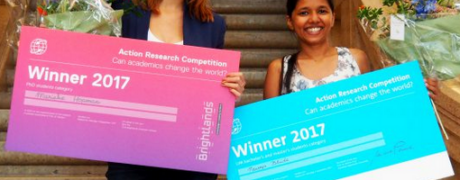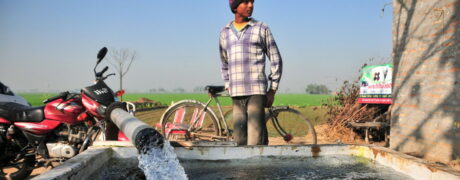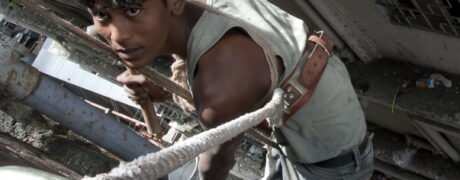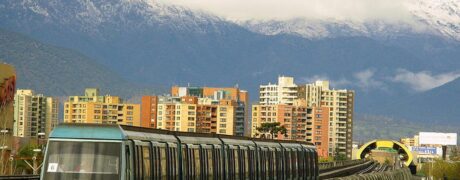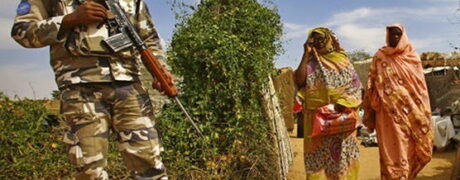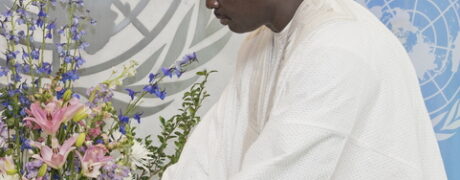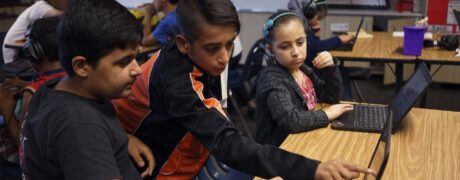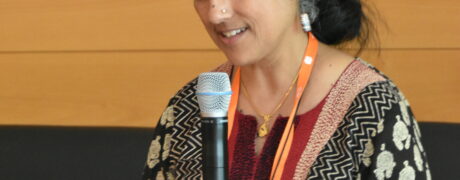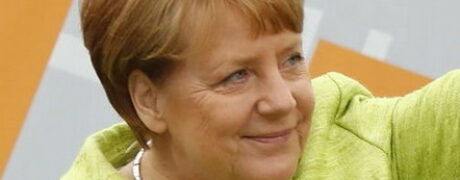News
Social innovation: How to shift up and over to a new economy?
12 September 2017
Strangers who share one car. A network around a drug addicted youth who offer care themselves, under the guidance of a professional. A person paying back an hour of painting window frames with an hour of working in someone else’s garden. These are all examples of a more social economy, which is grow...
Continue Reading →MPP graduate wins Action Research Prize
11 September 2017
Maastricht University (UM) celebrated the opening of the academic year on Monday 4 September 2017 by asking the question: ‘Can academics change the world?’ During the morning symposium, focusing on the action research approach in academic disciplines, six (all female) students (three Master’s and th...
Continue Reading →Sanitation wins must not become safe water losses
08 September 2017
A joint post by Rushva Parihar and Dorcas Mbuvi. … An estimated 2.4 billion people still do not have access to proper sanitation, of which about 1 billion still defecate in the open. These figures represent the enormous challenge of achieving Sustainable Development Goal (SDG) 6 and its spec...
Continue Reading →Can better governance cooperation improve environmental outcomes?
07 September 2017
The APPAM International Conference 2017 lived up to its theme of ‘Public Policy and Governance Beyond Borders’ – not least thanks to the academics, analysts, practitioners and students who joined from all around the world. I had the opportunity to present a paper on ‘Metropolitan Governance Cooperat...
Continue Reading →Can social protection end poverty in all its forms everywhere?
06 September 2017
Poverty rates have halved in recent decades: from 1.9 billion to 836 million people, mainly thanks to economic growth in countries like China and India. Nonetheless, more than 800 million people are still living on less than US$1.25 a day. In some regions, like Sub-Saharan Africa, the absolute numbe...
Continue Reading →Beyond Chile, Costa Rica and Mexico, Latin America’s innovation potential is largely untapped
17 August 2017
Chile, Costa Rica and Mexico were Latin America’s big winners in the 2017 edition of the Global Innovation Index (GII), which ranks the world’s economies on their innovative capabilities (innovation inputs) and measurable results (innovation outputs)....
Continue Reading →Corruption & migration: How women & girls pay a heavy toll
01 August 2017
When the so-called refugee crisis reached a peak in 2015, the German Development Agency (GIZ) started a new line of investigation: checking the links between corruption, migration and forced displacement. The investigations have a clear gender angle, reflecting the depths of suffering faced by migra...
Continue Reading →The future of Europe depends on research & innovation
25 July 2017
Prof. Luc Soete will address an informal meeting of EU ministers in Tallinn, Estonia, on 25 July 2017. Seeking to improve the coherence and openness of EU research and innovation partnerships, he joins speakers including Carlos Moedas, European Commissioner for Research, Science and Innovation, and ...
Continue Reading →Social Protection & Development: New Maastricht University Chair
07 July 2017
Social protection is not only a human right — in the long term it also boosts economies, says Prof. Franziska Gassmann, as she takes up her new Chair in ‘Social Protection and Development’ at Maastricht University. Below she explains why and how social protection works, and how much more needs...
Continue Reading →UN peacekeeping cuts could be a disaster for women and girls
07 July 2017
Due to US pressure, the UN General Assembly has voted to cut $600 million from the UN Peacekeeping budget. The impact on women and girls must be addressed, or the cuts could cause serious harm, say PhD fellows Ortrun Merkle and Diego Salama. Women walk past UN peacekeepers at South Darfur’s At...
Continue Reading →West African Governance: A model for the continent and beyond?
06 July 2017
Last year was perhaps the most electorally-charged year in West Africa’s nearly six decades of independence. Numerous local, legislative and national elections were held peacefully and conclusively in no fewer than seven states: Benin, Cape Verde, Côte d’Ivoire, Gambia, Ghana, Guinea and Niger. Brea...
Continue Reading →Mygration Story: Postcolonial musings from Asia to Europe
05 July 2017
It’s difficult to be wholeheartedly critical of colonialism when one’s family history is so closely intertwined with it. My great-grandparents joined the historical wave of Chinese labour emigration of the late 19th and early 20th century to what was then British Malaya....
Continue Reading →Immigrant youth help to build nations
04 July 2017
Immigrants and refugees, especially those from developing nations, are often portrayed by segments of the media and policy makers as an economic burden, a threat to our social cohesion and “our way of life.” However, immigrants and immigrant youth can help build nations like Canada. They are a great...
Continue Reading →European Innovation Scoreboard 2017: Sweden leads again
30 June 2017
Co-authored by researchers Hugo Hollanders and Nordine Es-Sadki, the European Innovation Scoreboard gives a comparative analysis of innovation performance across EU member states, other European countries, and regional neighbours. According to this year’s results, EU innovation performance co...
Continue Reading →Cities rally around the Paris deal, a reminder that global problems can have local solutions
27 June 2017
When President Donald Trump withdrew the United States from the Paris agreement, the landmark climate accord signed by 196 nations that came into force in November 2016, the decision caused a significant negative backlash among other signatory countries. Given that the US is one of the world’s large...
Continue Reading →Global Media Forum: Sharing expertise in a ‘post-truth’ world
22 June 2017
Trust in experts has plummeted in recent years, in our ‘post-truth‘ era. Yet humanity’s most complex problems — from violent extremism to food security to climate change — will never be solved by late-night tweets or political isolationism. What seems to be the key are ...
Continue Reading →The coming storm: Helping rural communities cope in Southeast Asia
15 June 2017
Climate change is not only about the environment – it also has major financial and institutional implications. This was the backstory to a recent report on ‘Risk Financing for Rural Climate Resilience in the Greater Mekong Subregion’ co-authored by GPAC² fellow Ornsaran Pomme Manuamorn. The report w...
Continue Reading →As US influence wanes, Germany has the chance to step into the spotlight
13 June 2017
Since the inauguration of President Donald Trump, the United States has been performing what seems to be a partial withdrawal from the international stage. This retreat is sometimes purposeful, as when the administration realised its campaign promise to exit the Paris climate agreement. But it is al...
Continue Reading →Terror & refugee law in the Mediterranean crisis: APPAM minority report #3
06 June 2017
In this study, I considered the needs of refugees and the responsibilities of states based on the 1951 Convention Relating to the Status of Refugees. The main question is whether or not terrorism affects the right and principle of asylum seeking. Another focus is the link between refugees and nation...
Continue Reading →Making Migration A Priority: Prof. Melissa Siegel
31 May 2017
Dr. Melissa Siegel, who runs the Migration and Development group at UNU-MERIT, was appointed Professor of Migration Studies at Maastricht University in August 2016. She gives her inaugural lecture on ‘Migration &: The Depth and Breadth of Migration Studies’ on 2 June 2017. Howard Hudson caught u...
Continue Reading →© 2024 UNU-MERIT | Maastricht University



